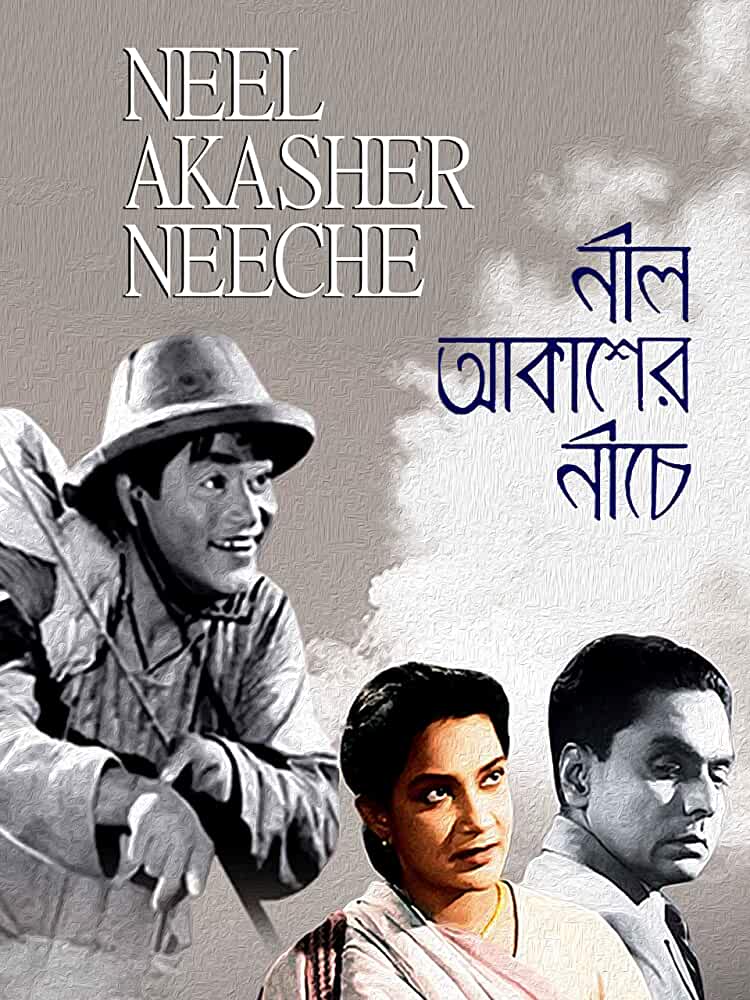This Mrinal Sen work became the first film to be banned in independent India in 1962
The Bengali film Neel Akasher Neeche, the second film directed by Mrinal Sen, is a marker of a time when it was considered unproblematic to cast a Bengali as a Chinese man and use make-up to pull his eyes into slits. But it is equally a remnant of a time when it was possible to make a box-office hit about the friendship between a Chinese street vendor in Calcutta and a politically active wife from an upper middle-class Bengali home. Three years after its successful run in theatres, the film became the first to earn a ban in post-Independent India when tensions on the Sino-Indian border escalated to a war in 1962.

Here, in his second project, Sen is already onto the theme that would come to define his finest films in the 1980s—the hypocrisy of the privileged, upper class in Indian society. But compared to the rage and dislike you sense in his superb Ek Din Pratidin and Kharij, Neel Akasher Neechey feels sweet and watered down. The Chinese vendor Wang Lu, played with disarming amiability by Kali Banerjee, is a poor peasant who has been forced off his land in China by a lascivious landlord who raped his sister. Shamed and impoverished, he flees and arrives in Calcutta, which has an old Chinese community. (Today, the city retains the only surviving Chinatown in India, with a Chinese school that is in the process of being re-opened.)
The film is set in the 1930s in Calcutta, a decade or so before Independence. Here, Wang Lu works a hardscrabble, wretched life as a street vendor of Chinese silks. He spends the day walking the streets of sweltering Calcutta, knocking on mostly-uninviting doors to offer his silks. He lives in a mean little mess-bari (workers’ lodge) and eats meals at a large, cheap eatery, the likes of which once dotted the city. Basanti, the political activist wife of a successful lawyer in the city, is kind to him when he knocks their door and offers him a drink of water. No one has shown him even this modicum of consideration in the busy megacity. He calls her ‘sister’, saying she reminds him of his own sister. The echoes with old-fashioned mainstream Hindi film are obvious—the brother-sister bond, the cruelty of feudal lords and their abuse of the ‘good men and women’ working their land.
Director Mrinal Sen identified as a Marxist all his life. This film is a textbook example of how early 20th century Marxism saw the world in categories of workers, and those who live off the labour of workers. When Wang Lu’s posh Bengali activist friend gets jailed, he joins her revolutionary group who want freedom from the British. This makes him think of his own country and the movements afoot to redistribute power there. And he leaves to join them himself.
I found it simplistic—Wang Lu is too sweet and good. Basanti is the noble upper-class person. I would have liked to see a little more anger in Wang Lu, a little more sharpness. I’d like to have seen a little arrogance and class entitlement from Basanti. In his brilliant Ek Din Pratidin and Kharij, all the characters you see are selfish, mean, hard to like. It makes for compelling storytelling that stays with you long after you finish watching.
But Neel Akasher Neechey is valuable for showing us the possibility of a society we were. Which is to say, a place where it was possible to make a box-office hit on an unlikely friendship between a Chinese man and a Bengali woman. And there’s an exquisite score by Hemanta Mukhopadhyay, the film’s producer. The song O Nodi Re is an all-time classic.
A fairly good print of Neel Akasher Neechey is available with English subtitles on Youtube